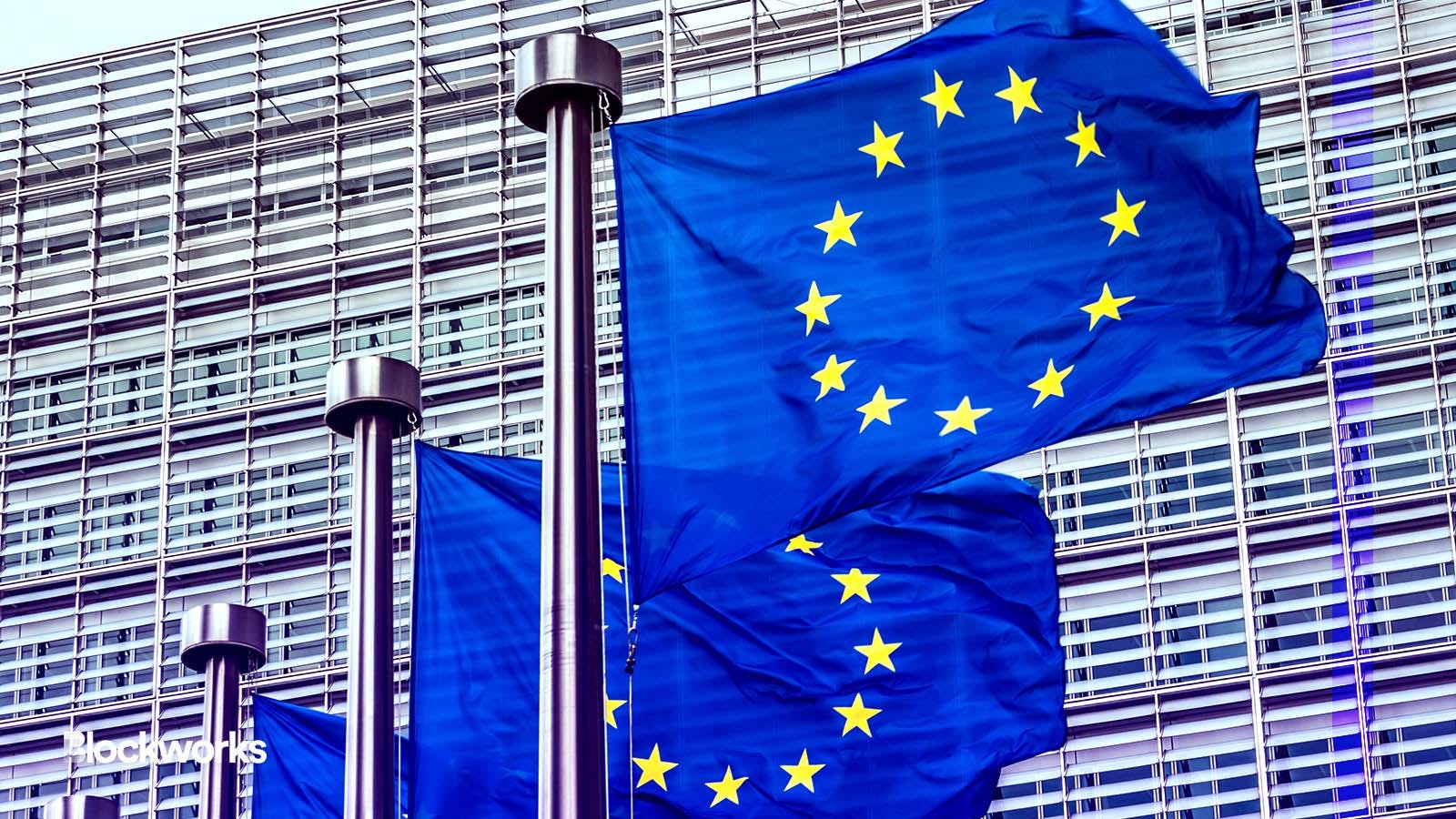Excluding DeFi from MiCA could cause ‘unintended risks’ to financial stability: AFME
Europe’s markets association believes a regulatory framework must be imposed on DeFi to maintain stability in the traditional markets structures

jarrow153/Shutterstock modified by Blockworks
The Association for Financial Markets in Europe (AFME) wants DeFi included in MiCA.
MiCA, or Markets in Crypto Assets, a law that aims to regulate digital assets, was passed by the EU Parliament back in April.
As the name suggests, AFME primarily monitors the financial markets in Europe, and represents both global and regional banks in the EU.
AFME looked at different elements of DeFi, from smart contracts to DAOs, to suggest areas where regulatory gaps could be filled.
Read more: UK Considers ‘Crypto Tsar’ to Head Up Regulation
“We believe that [decentralized] finance (DeFi) and its associated activities must be brought within the regulatory perimeter in an appropriate way to manage risks to market integrity, financial stability, and end users, while still promoting financial and technological innovation,” AFME wrote.
Specifically, AFME wants to provide DAOs with legal status, though it notes that some in DeFi may “evade any form of centralization to the largest extent possible and regulatory intervention and may need to rely on a self-governing model.” But further consideration would be needed in that case to flesh out how a DAO interacts with the regulated financial services industry.
Even if DAOs don’t get a legal status, then they still need to be monitored — though AFME believes there could be a case built for self-regulation depending on the DAO and its activities.
Among its suggestions, AFME pushes for standards on algorithmic trading rules, potential audits, and disclosures from protocols or protocol teams on both the distribution of governance tokens and influential powers held by the team and investors.
“Despite DeFi having varying levels of centralisation it is important for regulators to have oversight of the governance processes for financial activities being conducted. Existing governance regulations could be leveraged,” AFME wrote.
AFME also wants to ensure that certain aspects of DeFi that interact with the traditional financial system are regulated and monitored due to the potential impacts newer technology could have on the existing structure.
“DeFi efforts can build and test new primitives (e.g., borrowing, lending, trading, and investing using different token formats, smart contracts, and encryption approaches) on these common standards,” AFME said.
“While the initial focus has been on DeFi payments, as that has the current highest-level activity, we believe the impact on the real economy will be driven through the impact of these new DeFi-like approaches on the processes of borrowing, lending, investing, market making and transferring tokenized assets with the potential for a decrease in counterparty and settlement risk.”
AFME isn’t the first to bring up potential holes in digital asset regulation that MiCA doesn’t touch upon in its current form. Back in June, a study commissioned by the European Parliament also pointed out that DeFi protocols and their nuances were not considered in the current framework.
Get the news in your inbox. Explore Blockworks newsletters:
- The Breakdown: Decoding crypto and the markets. Daily.
- Empire: Crypto news and analysis to start your day.
- Forward Guidance: The intersection of crypto, macro and policy.
- 0xResearch: Alpha directly in your inbox.
- Lightspeed: All things Solana.
- The Drop: Apps, games, memes and more.
- Supply Shock: Bitcoin, bitcoin, bitcoin.





